These poems were mostly written each morning via Mastodon, with a one word prompt to guide the writing. I compose them quickly, so quality varies. If the poem has legs, I work to enhance them with a visual.
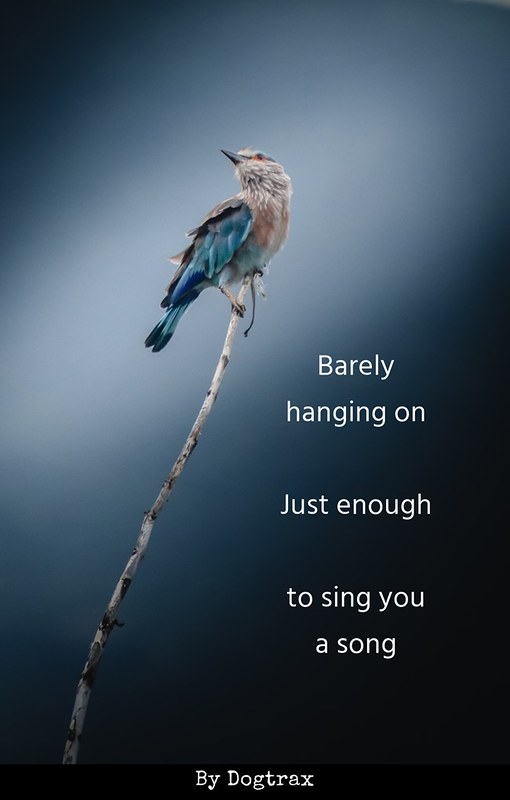

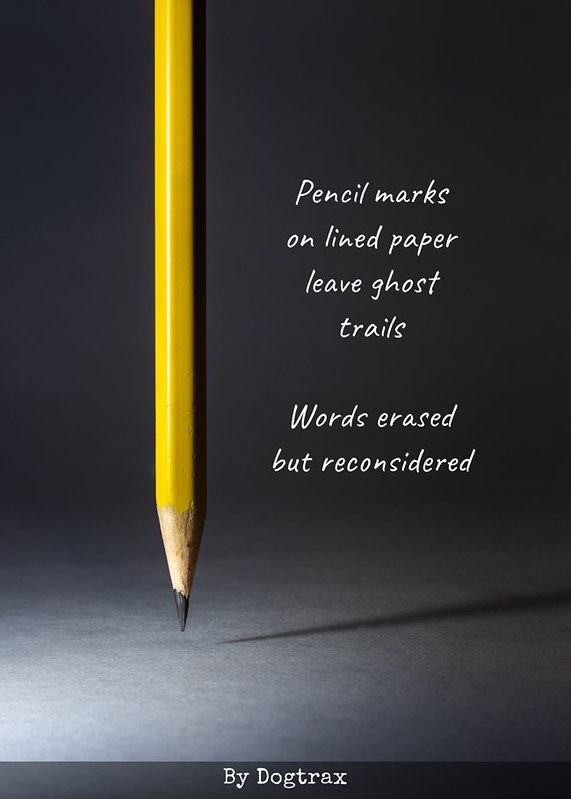
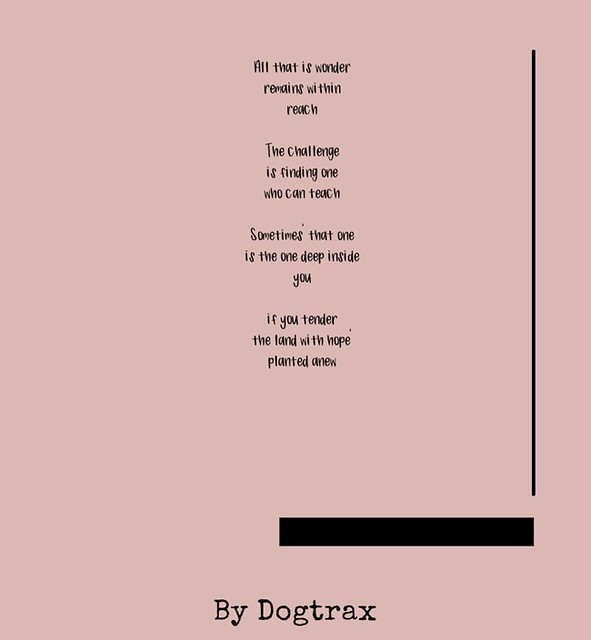

Peace (and poems),
Kevin
I was working on a song the other day, started early after a restless night (not all that unusual for me), and needed a title. I came up with Slow Walking Through Sleep, and as I was pulling the music beneath an image, words to a poem began to filter in. So I added that, too. I debated about whether I should add my voice, reading the poem, but opted against it, to allow the music that started it all to shimmer through.
Peace (and Song),
Kevin

You can read this entire collection of poems within an hour. Billy Collins, whose work I have long admired and enjoyed reading, turns his attention here to the concept of “small poems” — short verse, of just a few lines.
“I love the suddenness of small poems. They seemed to arrive and depart at the same time, disappearing in a wink … The small poem is a flash, a gesture, a gambit without the game that follows. There’s no room for landscape here, or easeful reflection, but there is the opportunity for humor and poignancy.” — Billy Collins, Musical Tables, pages 139-140
Like Collins, I also am immersed in small poems, writing them just about every morning from either a prompt off Mastodon, Twitter or blogs, and find that elements of capturing an idea in a confined universe of space and words opens up creative doors for poetry. Mine are hit or miss, and some I come back to later to tighten up but most are part of my morning routine — writing over a cup of coffee before getting ready for work at school. But I enjoy the routine and the form.
So I was excited to learn that Collins was also a fan of small poems and Musical Tables gathers together many of his pieces. It’s funny to see his small poems on the printed page of a book because there is more white space in this published collection than inked out words.
There are some gems here that I really enjoyed — his poems about writing poems, a favorite theme of mine, are witty and funny — and his observational style that is the center of so much of his poetry, along with his slanted humor, comes through. I laughed at times, for sure.
BUT — I wasn’t blown away here, and too many of the poems truly seem like throw-aways, something he might jot down on a sticky note in any other time and file away as an idea for something to be developed. Many in the collection here lack a real center or substance, in my opinion.
In fact, I find the small poems that people write and share on Mastodon and Twitter with the #smallpoems hashtag are more interesting and provocative pieces of art, and for the most part, Collins’ work in this book never really rose to that level, for me, anyway.
However, his interview on National Public Radio is fascinating, as he talks about small poems and the ways they allow a writer a path to expression in ways that longer poems may not.
Peace (in little text and lots of space),
Kevin
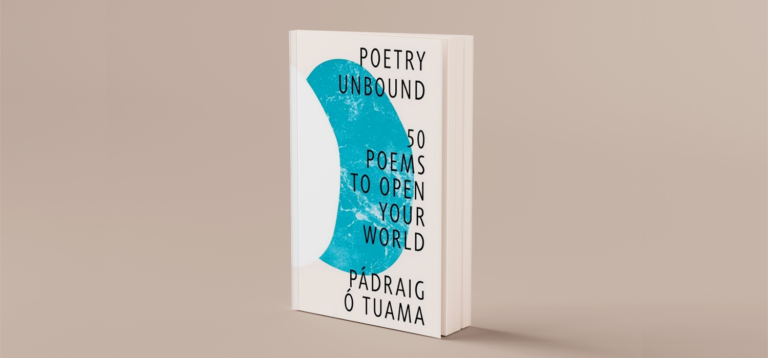
I’ve been listening to Padraig O’ Tuama in my ears a few times per week since the Pandemic with his wonderful Poetry Unbound podcast, where he explores a poem through various lenses and celebrates the art of writing with heart and compassion. It’s a beautifully produced podcast.
O’ Tuama has just released a book with the same name — Poetry Unbound (50 Poems To Open Your World) — and like the podcast, the book explores poems, but through his insightful and personal own contexts, giving each poem a short introduction (some read like prose poems) and then a longer essay on the poems.
His curation of poetry — some of which are featured in his podcast but then recast here through slightly different analysis — is enlightening, and most of these poems are ones I would not have come across before. His work as conflict mediator in Ireland through the times of trouble there gives him a certain perspective on tension on the page, and of love and resilence, as does his own personal life as a gay man who grew up in a conservative Catholic culture.
I tried to read this book slowly, letting each poem simmer as O’ Tuama’s analysis dug in, deep, and settled into my head. I found a deep appreciation for all the writers here, and what they achieved and hoped to make resonant with a reader like me, and I am appreciative to O’ Tuama for finding these pages of verse, and bringing them to the page and to my earbuds on a regular basis.
This is a book I highly recommend, whether poetry is your thing or not.
Peace (within pages of poems),
Kevin
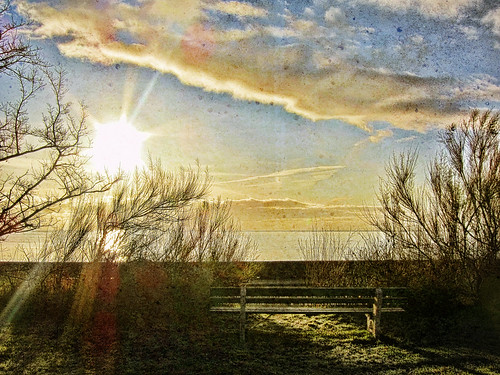
The shortest day of the year flickr photo by .^.Blanksy shared under a Creative Commons (BY-NC-SA) license
I wrote 25 poems over 25 days with a Winter Solstice theme, using mentor poems as inspirational texts. Each day, I recorded audio of my poems. Here is the entire collection, if you are interested. The file names are by date of publication, as I didn’t give the poems titles.
Another view of the entire calendar, with text and audio, is here.
Peace (and poems),
Kevin
This poem, for today, the Winter Solstice, is part of a larger collection of daily poems inspired by mentor texts that were curated by a National Writing Project friend, Deanna. I am trying to write one poem each day, as an advent calendar of sorts of poetry for winter. Today’s poem is inspired by Winter Solstice by Ray McNiece.
I’ve been writing and then recording audio of my poems but today — on the actual day of Winter Solstice — I decided to go a bit further, using an app for visual text, and voice, with soundtrack.
Peace (and poems),
Kevin